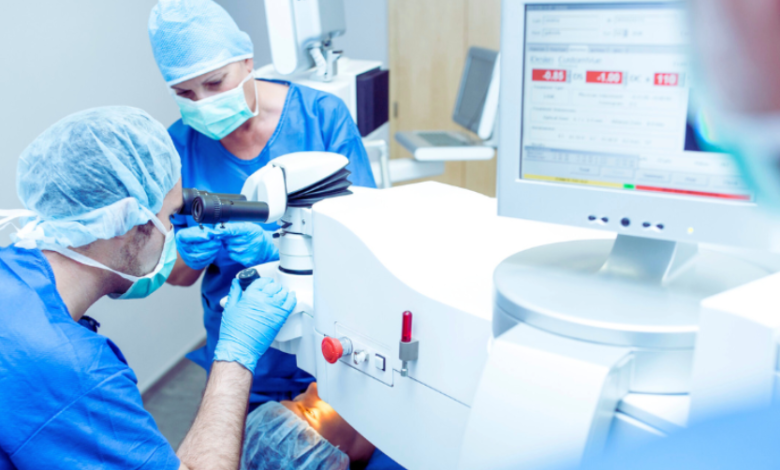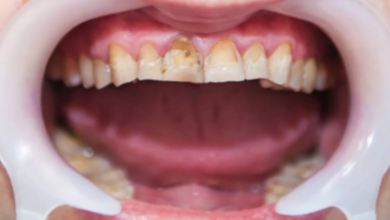What to Expect During LASIK Eye Surgery Recovery: Timeline & Tips

If you’ve chosen LASIK eye surgery, chances are you’ve been dreaming of waking up and seeing clearly without fumbling for glasses or popping in contact lenses. The good news? LASIK can give you that freedom. The slightly less exciting news? Recovery takes a little patience.
The procedure itself is quick—often over before you realize it—but the healing process unfolds over days, weeks, and even months. Knowing what to expect at each stage can ease your mind and help you prepare. Here’s a straightforward look at what LASIK eye surgery recovery time is really like, along with practical tips from people who’ve been through it.
Day One: The Post-Surgery Haze
Right after surgery, most patients describe their vision as “foggy” or “milky.” You’ll likely head home with protective shields taped over your eyes and a list of instructions from your doctor. Don’t be surprised if your eyes sting, water, or feel gritty—as if you’ve got sand in them. That’s completely normal.
Best tip for Day One: Go home, close your eyes, and rest. The more you sleep, the faster your eyes settle. Avoid TV, phones, and bright lights.
See also: Online Counselling Canada: Accessible Mental Health Support Across Provinces
The First Few Days: Adjustment Mode
By the next day, many people are amazed at how much sharper things look. Street signs, phone screens, and even the alarm clock across the room suddenly come into focus. Still, your vision may bounce between clear and blurry. Lights at night might look like they have halos, and dry eyes can make things uncomfortable.
Expect to:
- Use lubricating eye drops often
- Wear sunglasses outdoors
- Avoid rubbing your eyes
- Skip makeup, swimming pools, and dusty environments
This is also when follow-up appointments happen. Your surgeon checks to make sure healing is on track and reassures you that what you’re experiencing is normal.
Weeks One to Four: Getting Used to Your “New Eyes”
During the first month, your vision steadily improves, though it might not be perfect right away. Dryness is still common—especially if you spend hours staring at screens for work. Some people notice glare or halos at night, particularly when driving. These side effects usually fade as the eyes stabilize.
Practical tip: Follow the 20-20-20 rule. Every 20 minutes, look at something 20 feet away for 20 seconds. It gives your eyes a much-needed break.
One to Three Months: Vision Settles Down
Most patients report stable vision within a few weeks, but full recovery can take up to three months. During this period, you’ll notice that dryness improves, night glare reduces, and your eyes feel more “normal” again. If you’re consistent with your eye drops and protective habits, you’ll likely enjoy crisp, clear vision for the first time in years.
This stage is where you truly understand that LASIK eye surgery recovery time varies for everyone. Some heal fast and experience minimal side effects, while others take a little longer for vision to fully stabilize.
Three to Six Months: The Final Stretch
By now, you should be experiencing the full benefit of LASIK. For many people, this stage feels like life before glasses or lenses ever existed. Occasional dryness can still crop up, especially in air-conditioned rooms or with long screen time, but it’s far less frequent.
At this point, your doctor will usually confirm whether your vision has stabilized. Very few people need an enhancement procedure, but if your eyes haven’t fully corrected, this is when the decision is made.
Tips for a Smooth LASIK Recovery
- Stick to your drops. They aren’t optional—they keep your eyes moist and prevent infection.
- Wear shades. Even on cloudy days, your eyes are more sensitive to UV after LASIK.
- Be mindful with workouts. Gentle walking is fine early on, but avoid heavy lifting, contact sports, or swimming until your doctor gives the green light.
- Don’t rub. This is the golden rule. Even if your eyes itch, rubbing can interfere with healing.
- Rest when you need to. Tired eyes take longer to recover.
When Should You Call Your Doctor?
Most recovery is smooth sailing, but don’t ignore warning signs. Reach out to your eye surgeon if you notice:
- Sharp or worsening pain
- Sudden vision loss or dark spots
- Flashes of light or an unusual number of floaters
- Intense redness or swelling
Quick action can prevent small issues from becoming serious.
Final Thoughts
LASIK doesn’t just transform your vision—it can transform how you go about your day. But recovery isn’t instant. Expect ups and downs during the first few weeks, follow your doctor’s instructions to the letter, and be patient with your eyes as they heal. The payoff—clear, hassle-free sight—is worth every drop of artificial tears and every night spent in protective eye shields.
So, how long does it take? For most, LASIK eye surgery recovery time ranges from a few days of initial healing to about 3–6 months for complete stabilization. Everyone’s eyes are different, but with the right care, you’ll be enjoying the results long before then.
FAQs About LASIK Eye Surgery Recovery Time
Q1: How soon can I drive after LASIK?
Many patients can drive within 24–48 hours, but only after their doctor confirms it’s safe.
Q2: Can I go back to work quickly?
Some people return the next day, but if your job is screen-heavy, taking two or three days off helps your eyes adjust.
Q3: Do night vision issues go away?
Yes. Glare, halos, and starbursts are common early on but usually improve over the first few months.
Q4: Will I ever need glasses again?
For distance vision, probably not. But as you age, presbyopia (the need for reading glasses) may still develop in your 40s or 50s.
Q5: How long before my vision is completely stable?
Most people reach stable, final vision within 3–6 months, but individual LASIK eye surgery recovery times may vary.





